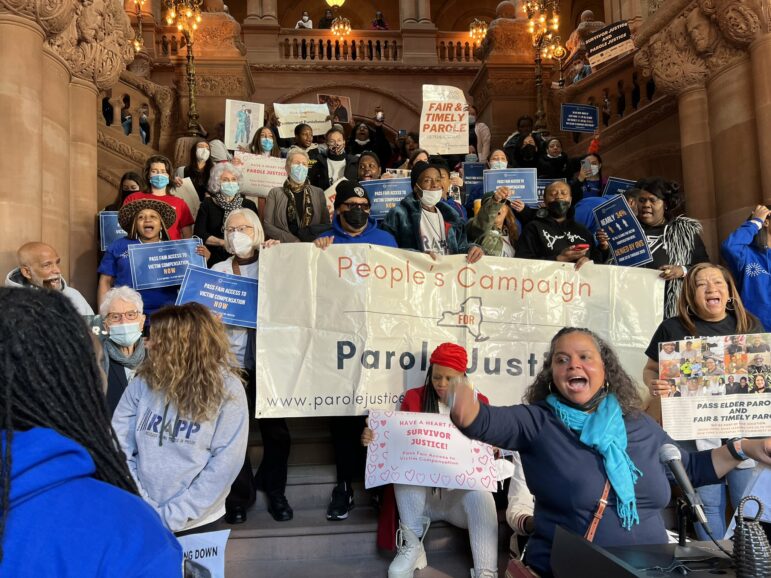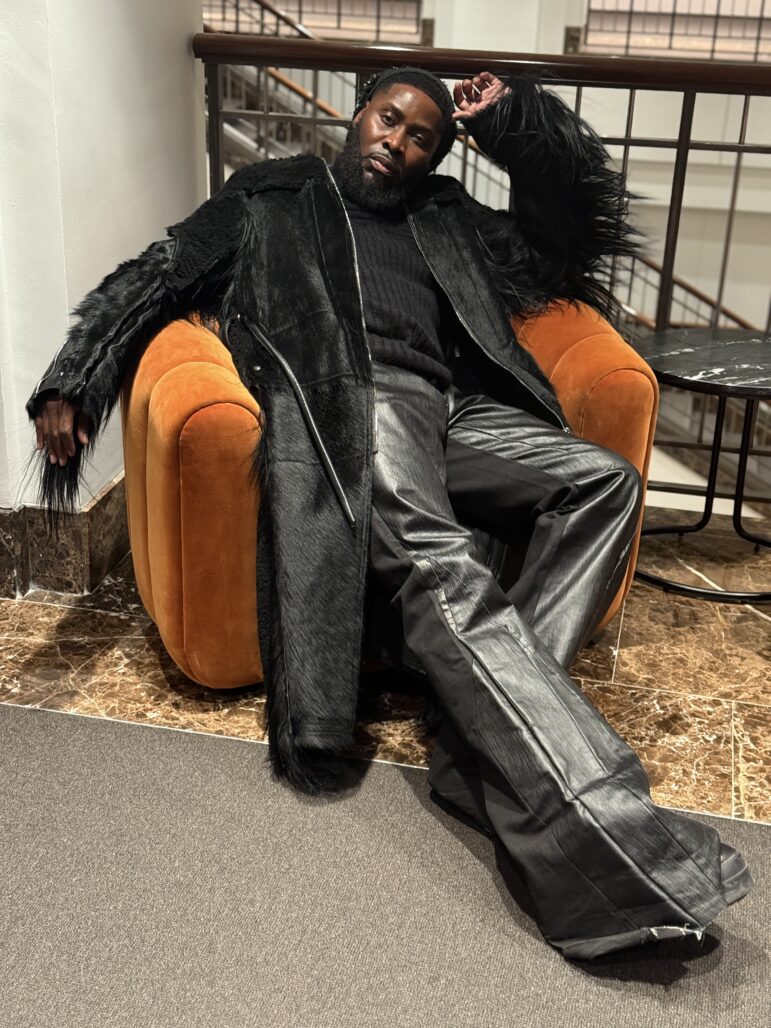“We witness firsthand the challenges that our older participants face when they come to us, usually because they no longer have family to turn to after such long periods of incarceration: physical health issues that might be less severe if treated properly sooner; unaddressed trauma, greatly exacerbated by incarceration; lack of financial resources; and homelessness.”

Release Aging People in Prison (RAPP) Campaign
Advocates rally in Albany in February in favor of parole reforms.The first person to die on Rikers Island this year was 65-year-old Marvin Pines. Mr. Pines, who suffered from seizures, was held in the North Infirmary Command, a unit for people with acute medical conditions and disabilities, after he had pleaded guilty in a non-violent case directly tied to his addiction. His death while in custody is a sobering reminder of the dangers that incarceration poses to our seniors.
The numbers of aging people in prisons across New York State have climbed steadily over decades even as the overall prison population has fallen, due to harsh sentencing laws and a parole process that focuses entirely on peoples’ past actions, as opposed to their current state of rehabilitation and remorse.
Yet people in prison often completely transform themselves, accepting responsibility for their past actions. They take advantage of opportunities for growth provided within the prison setting and even create new ones, often mentoring younger peers to do the same.
Last year, The Fortune Society was part of the CARE Task Force, which served as the only interagency Task Force focusing on elder reentry in the country that was established by the City Council. We were part of that initiative because many of those we serve were behind bars for decades and released as senior citizens.
We witness firsthand the challenges that our older participants face when they come to us, usually because they no longer have family to turn to after such long periods of incarceration: physical health issues that might be less severe if treated properly sooner; unaddressed trauma, greatly exacerbated by incarceration; lack of financial resources; and homelessness.
While people over age 55 make up less than 20 percent of all Fortune participants, they represent nearly half of the participants we serve via our continuum of housing. They also comprise over 30 percent of the people we serve through our care management division, helping people with chronic health needs navigate the medical and mental health care systems. The poor medical care and other substandard living conditions inside prisons contribute to findings that older people in prison tend to be medically 10 years older than their chronological ages.
While Fortune’s housing supply is limited, we prioritize providing supportive housing to this older population of people who have served significant prison sentences because their needs are so dire. The alternative for them is all too often the streets or shelter, which can quickly prove fatal given their ages and medical conditions.
In light of this pressing need, we recently opened a new housing program, Mandaela Community in the Bronx, to provide supportive housing to people 62 and over who have been held in our state prisons as well as our city jails, and who would otherwise be homeless.
Given these challenges, we must enact measures that are both humane and make common sense: the Elder Parole and Fair and Timely Parole Acts. They would codify what has long been recognized by numerous studies: that older people who have served significant time for violent offenses that occurred far in the past are not a significant risk to public safety.
Neither of these bills would remove the discretion of the Board of Parole to deny parole in specific cases, and nobody is guaranteed release under these bills. They are not radical steps but measures that would support people post-incarceration.
And they would yield significant savings as well: both measures could save the state an estimated $522 million per year, some of which should be reallocated to re-entry services to ensure people are better supported after they leave prison or jail.
At Fortune Society, we believe in the power of people to change. These measures would rebuild lives by creating a justice system that is fairer, more humane, and creates opportunities for people to succeed.
Andre Ward is the associate vice president of the David Rothenberg Center for Public Policy at The Fortune Society.









One thought on “Opinion: Addressing the Plight of New Yorkers Aging Behind Bars”
I remember when City Limits began and at one point, I had the first magazine, anyway, we have been discussing mental health for the imprisoned, specifically, the aged population. I myself am at the age where I know how they may feel. No, I was never imprisoned as they are, however, I did go through a form of imprisonment. These days when I try to talk to some younger ones, they look at me as if I were from a different planet, therefore, I came up with the idea of Mental Health for Seniors Citizens and the Imprisoned. I have given this idea to my Church Groups that have Mental Health workers and professionals. We need to know when, where and how to begin. These people are suffering and they need assistance now.